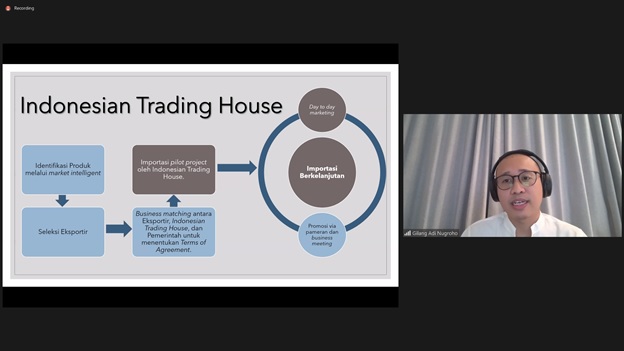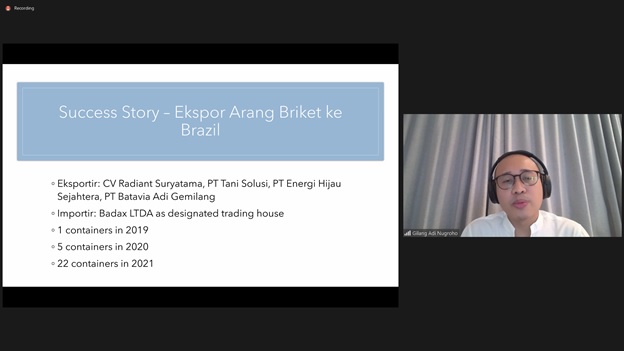Don’t belittle yourself, even if your company still has a limited amount of capital. It turns out that expanding into new markets abroad is possible. Digital and globalization era enables many opportunities. The issue is whether you are willing to try to seize that opportunity.
 SBM ITB invited Gilang Adi Nugroho, the Director of the Indonesian Trade Promotion Center in the So Paulo Area of Brazil, as a guest lecturer in the virtual class to respond to this challenge. Gilang, an Indoneian government representative in Brazil, invited students to interact with various parties to foster relationships Tuesday (12/04/2022).
SBM ITB invited Gilang Adi Nugroho, the Director of the Indonesian Trade Promotion Center in the So Paulo Area of Brazil, as a guest lecturer in the virtual class to respond to this challenge. Gilang, an Indoneian government representative in Brazil, invited students to interact with various parties to foster relationships Tuesday (12/04/2022).
“The tips for dealing with potential buyers from other countries are that we must be trusted and maintain buyers’ trust. It is preferable if we have a transparent attitude, especially when negotiating,” said the former Head of Section in the Republic of Indonesia’s Ministry of Trade.
Transparency can boost the other party’s trust. Besides, we need to be more adaptable and try to communicate by adapting to the local culture.
Risk Reduction is Required
Gilang also stated that there could be issues arising from this import-export activity. Both exporters and importers are exposed to the same level of risk.
“From the exporter or supplier side, the problems of SME exporters frequently lie in inconsistent quality, price fluctuations, and a poorly balanced business structure. These three factors may pose a challenge to the importer. So that if the buyer decides to end his business relationship with us in the future,” said a graduate of the National University of Singapore’s Lee Kuan Yew School of Public Policy.
On the other hand, obstacles that may arise from the perspective of importers or foreign parties include payments that may be hampered or even lost track. This can only be alleviated by working with parties other than exporters and importers. The banking sector, the government, and the import-export community in the relevant location can all be involved.





